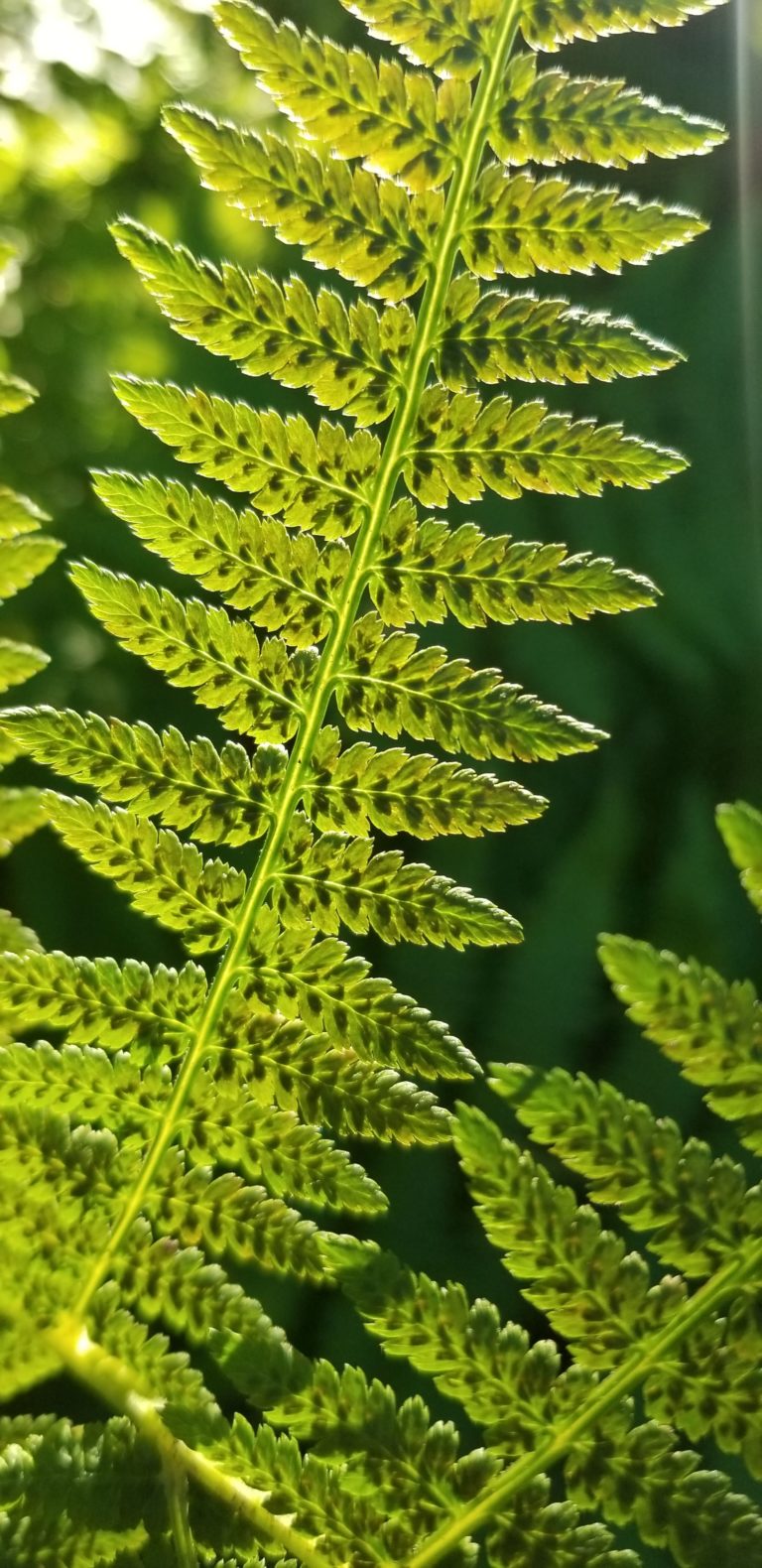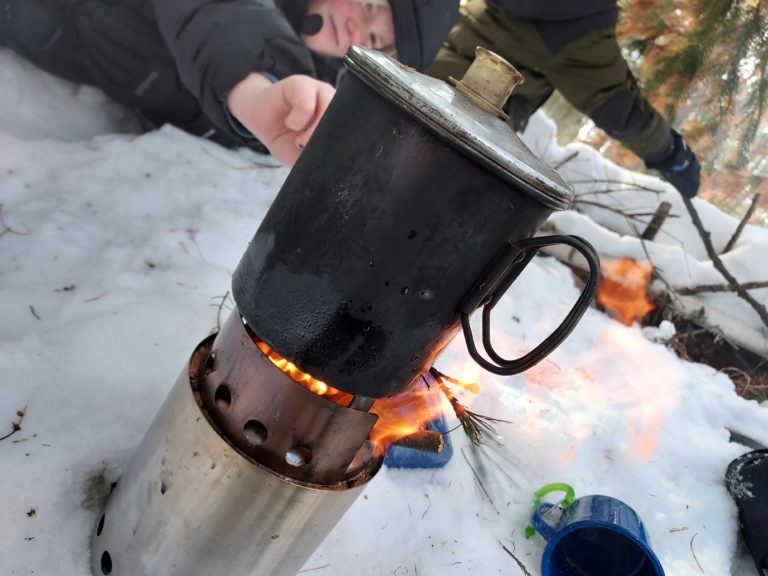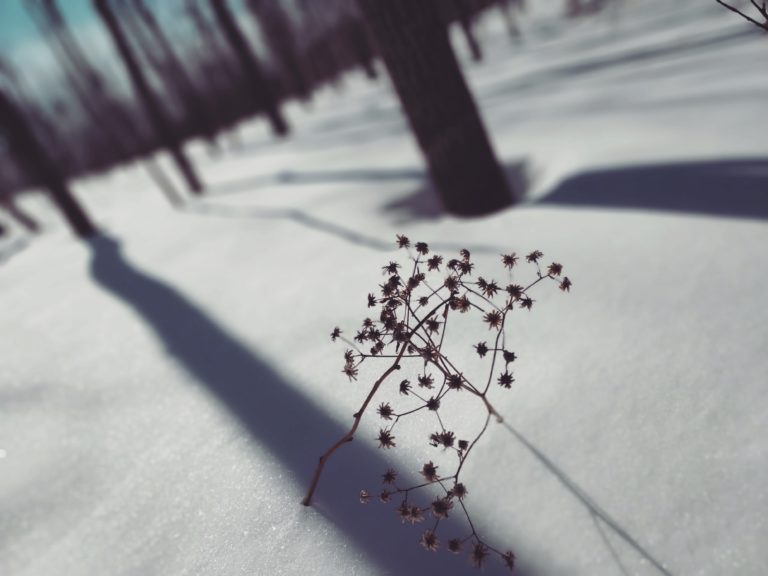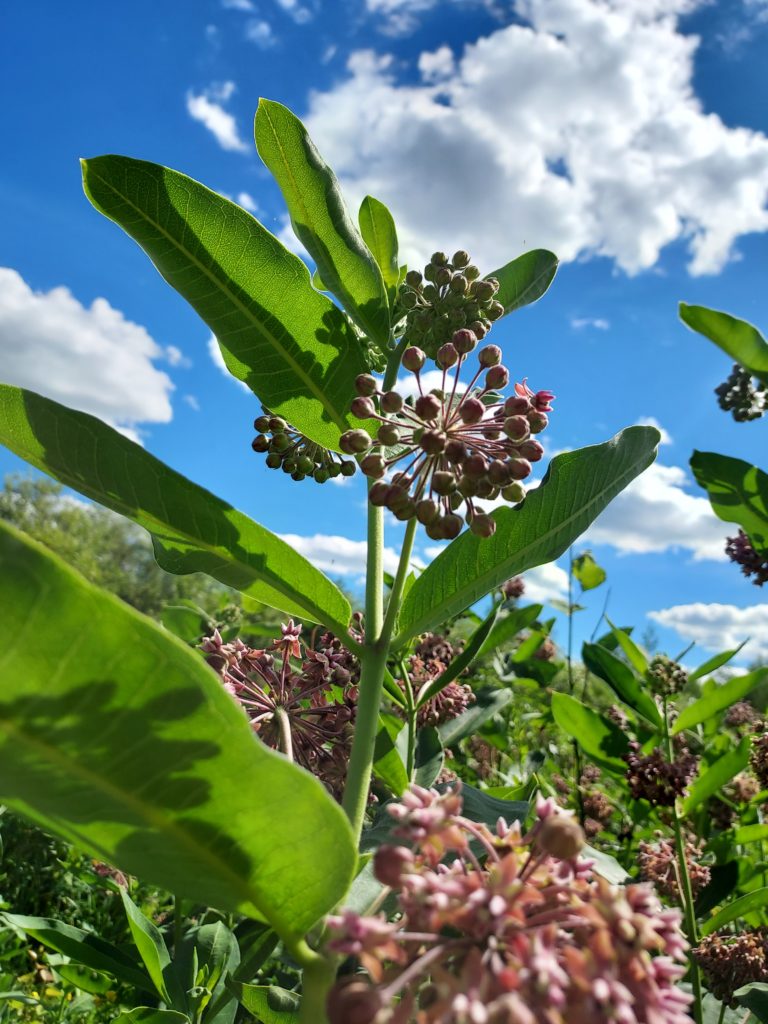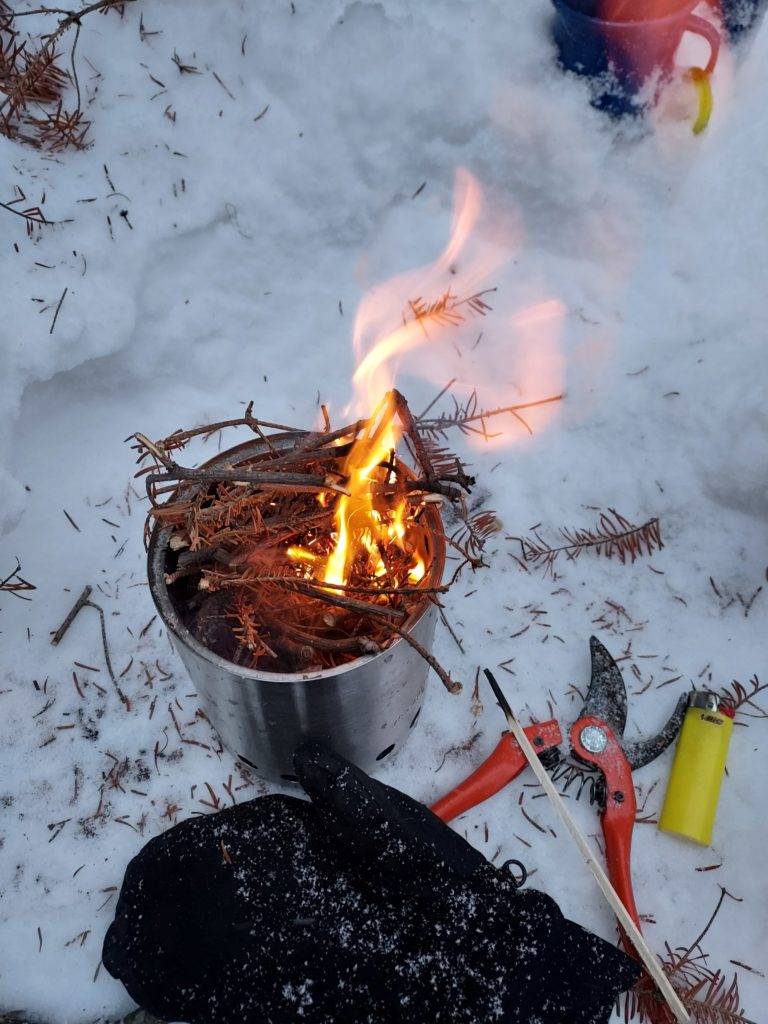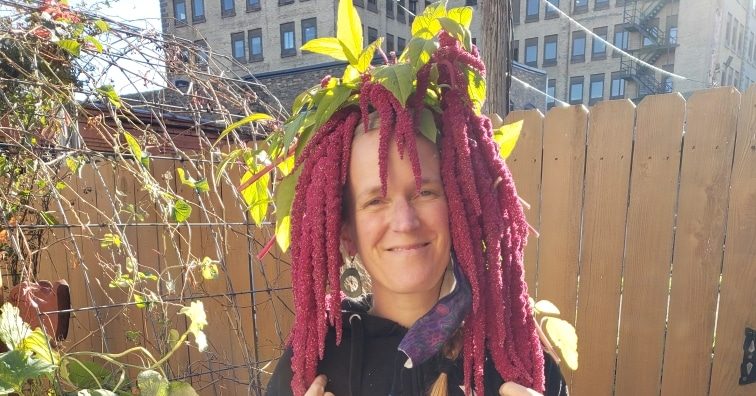The Ramp Patch/Promise of a Forager
Ramps are the smell of spring. After a long long winter of no earthy smells, the aroma of the ramp patch awakens my senses, and affirms that YES, despite my doubts, summer will come again this year! HURRAY!!! Spring has been such a looooong time coming this year. Usually the ramps are ready for picking in late April/early May, but this year it’s the end of May.

Last weekend Matt joined me on my annual trek to the ramp woods. My secret ramp patch is a decent hike from the nearest parking lot just off the Superior Hiking Trail. I knew we were approaching the ramp woods as the poplar trees were being replaced with maples and I could see green blanketing the forest floor. Like a good forager, I will reveal no more details to the location of my magical ramp patch.
Although this patch is not highly-trafficked, I know I don’t have it all to myself. You can see the patch from the hiking trail and this section of the Superior Hiking Trail does get some traffic. As we were approaching, other hikers were heading out. They had a backpack and may have been harvesting some of the ramps. As we’re considering where and how much to harvest, I think about the idea of reciprocity. And how I’ve been trying to integrate it into my relationships with plants.
This idea that you could have a 2-way relationship with plants first really started percolating into my way of thinking when I started working on youth development and garden projects for the American Indian Community Housing Organization (AICHO) in Duluth. In this role I was emersed in Native culture and over the course of 5 years working with youth in the community, I had the privilege of many Elders and cultural knowledge holders sharing teachings with me. I was so drawn to the idea that plants were my relatives. And I could get to know them by understanding where they lived, who were their plant neighbors, when did they bloom, what other animals used them, were they edible, what kind of recipes could I make with them, what kind of soil did they like, and what kind of medicines did they offer? I started going into the woods to visit my plant relatives. I started talking to the plants on my hikes and opening myself up to what they had to teach me.
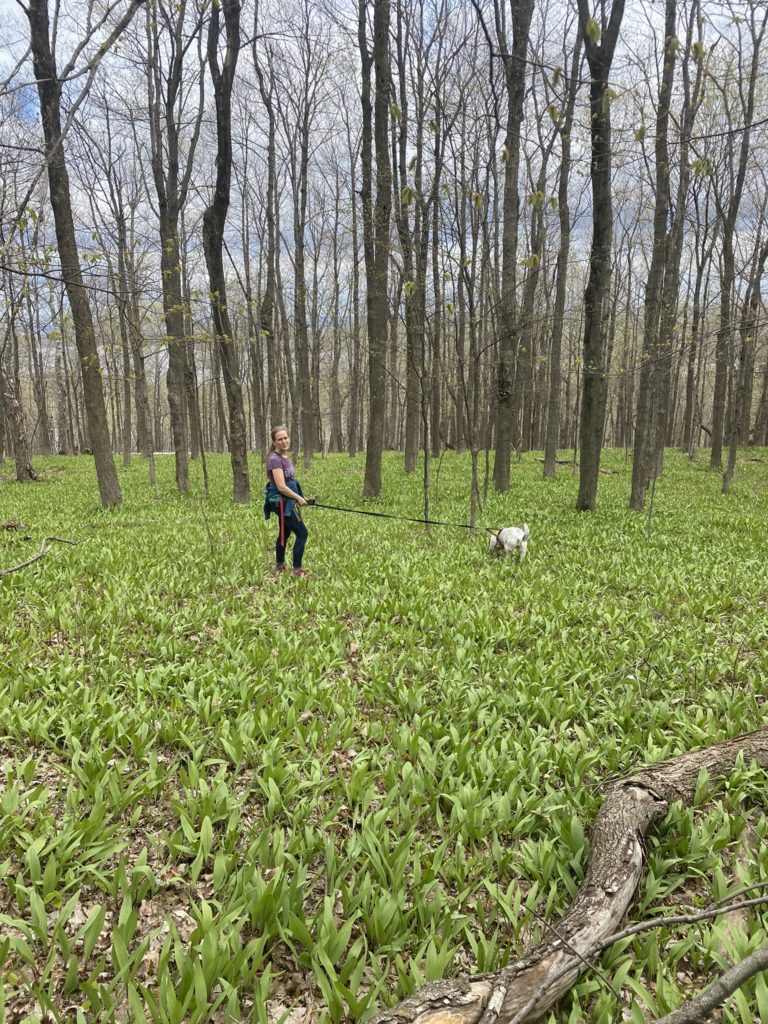
And then I read Braiding Sweetgrass by Robin Wall Kimmerer. She writes about the “grammar of animacy” and how giving plants, animals, rocks, and water “personhood” impacts the way we interact with them. Giving plants personhood and considering them our relatives opens the door to a two-way relationship built on reciprocity. She writes, “maybe a grammar of animacy could lead us to whole new ways of living in the world, other species a sovereign people, a world with a democracy of species, not a tyranny of one—with moral responsibility to water and wolves, and a legal system that recognizes the standing of other species…But imagine the access we would have to different perspectives, the things we might see through other eyes, the wisdom that surrounds us. We don’t have to figure out everything by ourselves: there are intelligences other than our own, teachers all around us. Imagine how much less lonely the world would be,” (Kimmerer, 58).
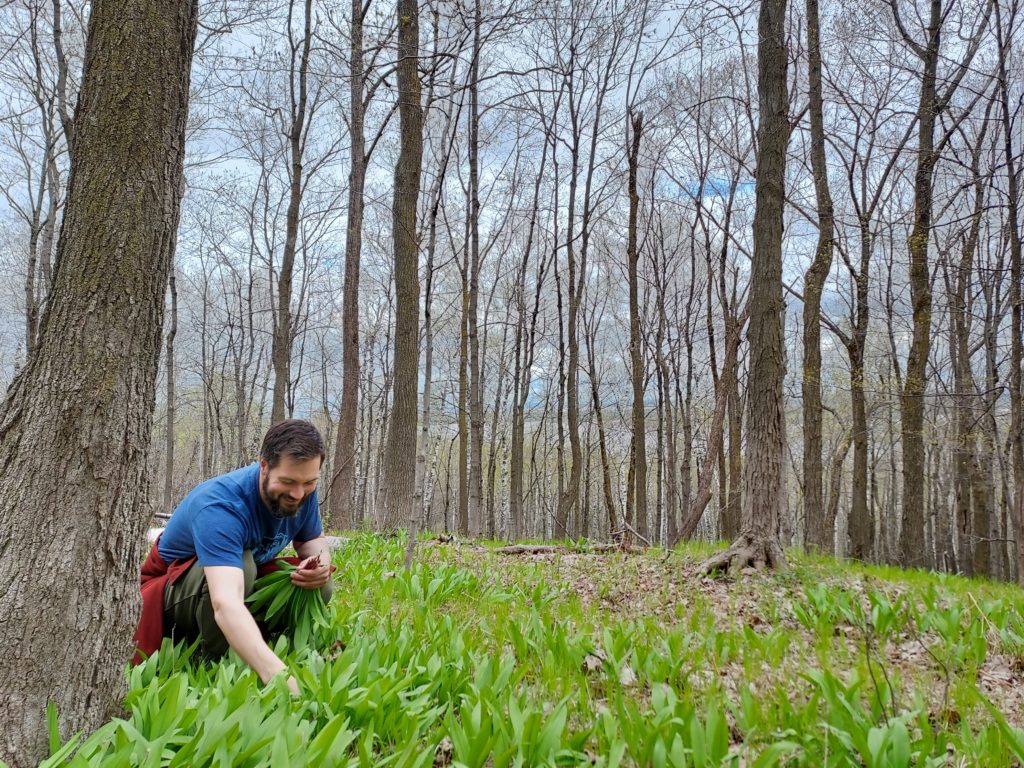
As Matt and I soak up our surroundings, I talk to the plants. I ask my ramp relatives if it’s OK if I harvest some of them today. I explain that I will selectively harvest away from the main trail, and not harvest the bulbs and roots to have less of an impact on the integrity of the patch. I explain to my plant relatives that I will use them to make food that honors ramps, and how they connect me to the world and contribute to my sense of place, which makes me accountable to the wellbeing of the plant relatives that I know and care for. In exchange for what I take, I give the plants this prayer and promise.
Matt and I harvest together in the ramp woods. This is the second time I’ve taken him to the ramp woods. As we harvest, we don’t really talk. We just absorb our surroundings, opening up all of our senses to the smells, the sounds, the sights, just being in the moment. Together.
When we’ve gotten enough we pack up and head out. We hike past half-way unfurled ferns, trilliums in bloom, and some other cute little white flowers that I take a picture of so I can look up later. We stop to watch a piliated woodpecker, smell the air, breathe. As we saunter along we talk about camper vans, housing prices, and the earth-shaking revelations of 11-year-old girls.
We go home hungry and tired. We are eager to cook with our harvest. I search the refrigerator and cupboard collecting ingredients that rise to the level of the specialness of the ramps we just harvested. I grab a handful of morel mushrooms that my dad harvested and dried. I grab the shitake mushrooms we bought at the farmers market today, asparagus from my garden, and dandelion greens I harvested from the yard. We smell each ingredient before chopping them up and sauteing them in the soup pot. When the soup is done Matt and I sit down and eat. It tastes soooo good, like springtime in a bowl.

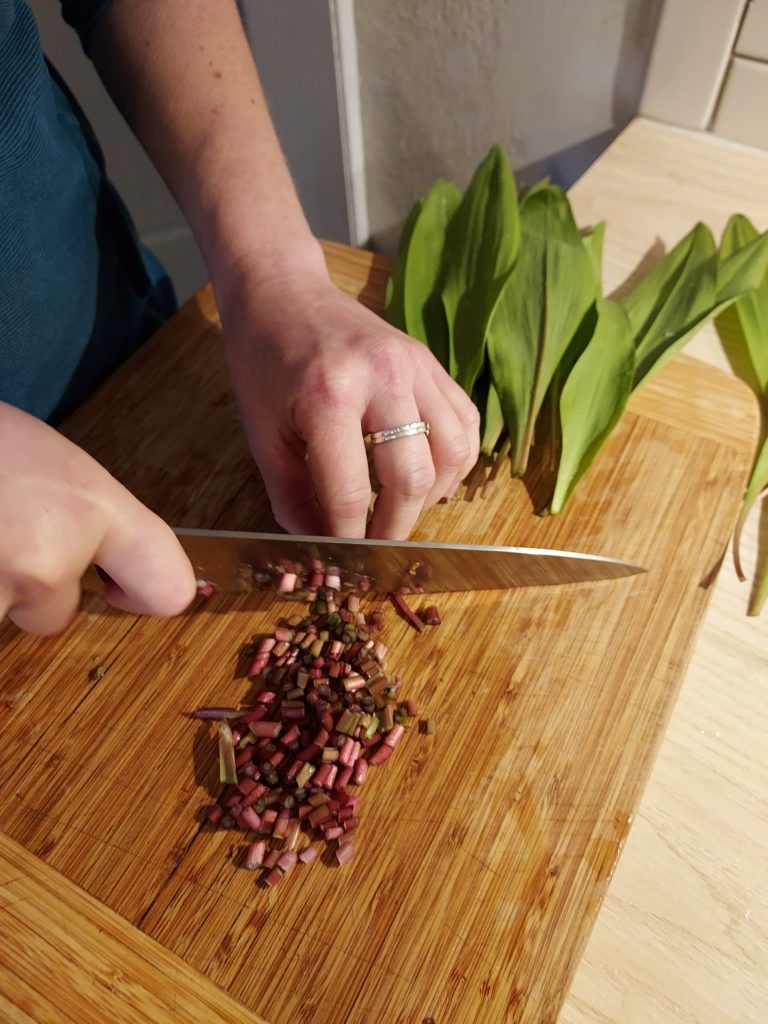
The hike, the harvesting, the time together in the woods, with our plant relatives, the cooking with the harvest, the eating, it all feels like such a gift. A gift from my plant relatives that I promise to protect and fight for.
In her book Braiding Sweetgrass, Robin Wall Kimmerer shares her guidelines for practicing reciprocity with her plant relatives. Guidelines that I promise my plant relatives I will do my best to uphold:
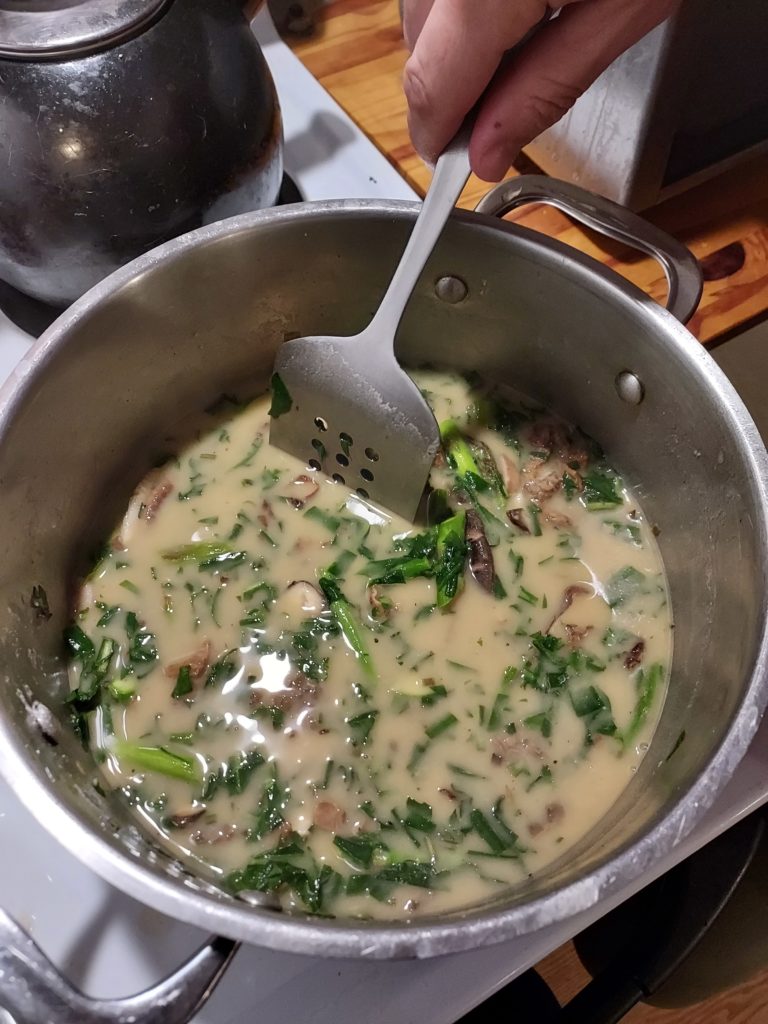
“Know the ways of the ones who take care of you, so that you can take care of them. Introduce yourself. Be accountable as the one who comes asking for life. Ask permission before taking. Abide by the answer. Never take more than half. Leave some for others. Harvest in a way that minimizes harm. Use it respectfully. Never waste what you have taken. Share. Give thanks for what you have been given. Give a gift, in reciprocity for what you have taken. Sustain the ones that sustain you and the Earth will last forever.“
In consideration of the events of the last week, it occurs to me that adopting these guidelines of reciprocity to other living things might be one of the most radical acts of resistance against the violence, horror, and destruction going on in our world today. It is the medicine.

